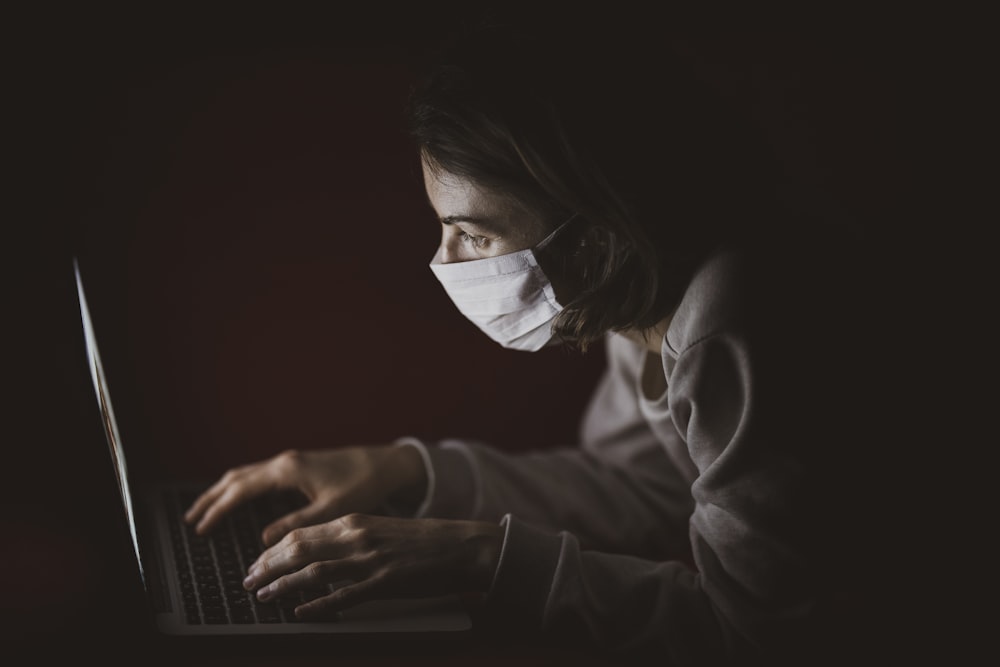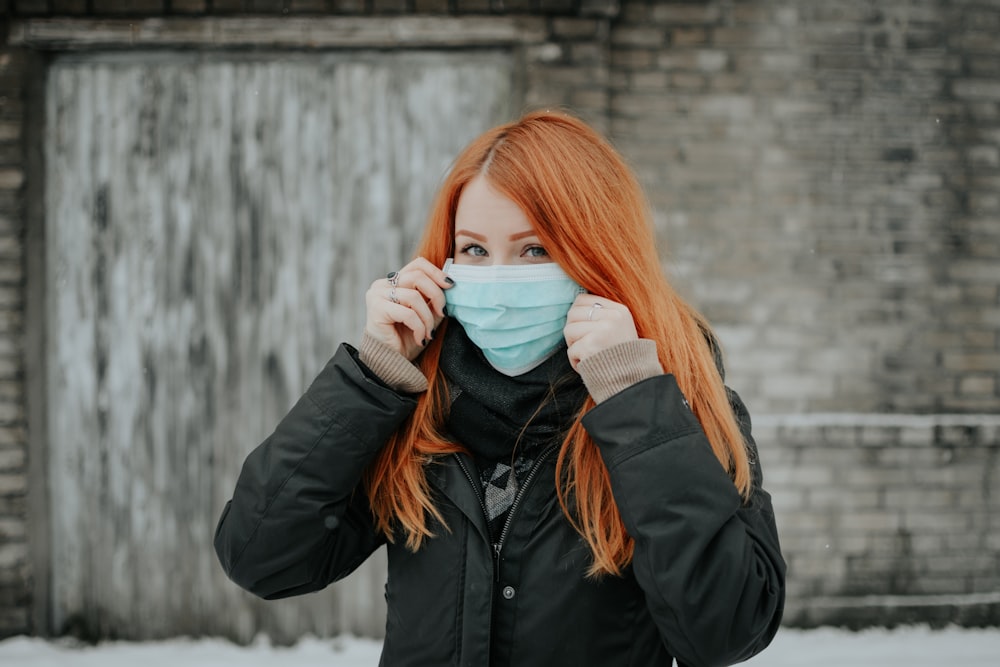
Why it’s okay if you’re a little freaked out at the idea of leaving lockdown
If you’re a little freaked out by the reopening of society after the pandemic, you’re not alone.
I think everyone is a little shocked at the announcements of last Thursday when the Cabinet decided to reopen to the extent that they are reopening. May tenth sees intercounty travel, personal services (thank God), click and collect and to a certain extent, household visits resuming. June second and seventh will see hotels and outdoor hospitality also opening their doors.
And this is all amazing, and we’re all so excited to have these services available again, to be able to go outside our county, to be able to see people and eat food that hasn’t come from a takeaway bag – but it’s also terrifying?

Everyone I spoke to over the weekend seemed almost in shock, or in denial at the government’s announcement. I think many of us had mentally prepared for another month or so of level five lockdown and to see an abrupt lifting of this scale was jarring for lots of people. Is it because we’ve become used to being locked down? Or is it inconsistent with government messaging the last few weeks? Covid cases are still very much at a stasis in the three to five hundred mark, with the last week seeing jumps and dips in cases of everything up to 567 cases last week down as far as 368 within the same week.
The vaccine rollout situation is constantly developing and the government are obviously following public health advice as well as considering the economic impact of lockdown, but it’s thrown plenty of us off our guard. Bu is it just cases that have so many of us afraid of the impending return to ‘normal’ life or is it something more?
None of us want to go back to Zoom quizzes or not seeing our family or being stuck in our 5km. But at the same time, the idea of going back to crowded clubs, maskless public transport and travelling to foreign places can make us feel breathless and not necessarily in a good way. Our worlds have shrunk in the last year and for a lot us, our existence has become very snug and very comfortable in our bubble. We made an active effort to live as risk-free as possible, confining ourselves to our homes except for essentials for over a year, so suddenly going back out into the great big world and taking risks that we used to take without a second thought is really overwhelming.
We spent the year mourning and grieving for our lives in the ‘old world’ and yet are so afraid to step back into it. Maybe its because we know that this society that we’re coming back to is changed irrevocably – that it’s not the same old world we’re returning to, but actually, we're entering a brand new one that’s stuck somewhere between our locked down world and our old world. It's likely to be a strange blend of the two, which creates uncertainty and fear – because we have no idea what it will look like.
Many of us have even reevaluated that ‘old world’ and how satisfied we were with it really. Not that a pandemic or a lockdown was any kind of blessing, but it definitely made a lot of us stop and think about our daily habits for the first time in a long time. Maybe we had to leave the office to see how much it was draining us. Maybe we had to live 24/7 with our person to realise that maybe they weren’t our person after all. Maybe our hectic lifestyles had to grind to a halt to realise who was really there for us, what really mattered and if our life was as fulfilling as it seemed.
The idea of returning to that world – even though both it, and we, have changed – is causing people to experience ‘post-lockdown anxiety’, a condition newly recognised by mental-health charity Anxiety UK. Defined as ‘the fear or worry of returning to normal life and leaving lockdown’, the condition is unique to our Covid world. Wateringbury Surgery, a group of clinics offering the highest standard of patient-centred healthcare, explained why the idea of leaving lockdown is so stressful to us, even though the conditions of lockdown were already exacerbating the nationwide rise in cases of anxiety.
‘Lock down was an opportunity to opt out of all the pressures of the outside world and actually come as a welcome relief. With more time to sleep, read, and reflect, some people with pre-existing mental health conditions are even seeing their moods improve — which is why the idea of ending lockdown is so jarring.’
It’s the uncertainty and unfamiliarity of this developing situation that has a lot of worried. What will life look like now? How can we stay safe and protect our loved ones? How can we ever get back to our old lives? Nicky Lidbetter, CEO of Anxiety UK, advises taking small steps if your lockdown has been especially stringent or if you’re struggling to reintegrate. Taking it one day at a time and building up that confidence again is something to work on, by taking a short drive in the car, going beyond your 5km, or meeting for a distanced walk with a friend. When it is safe for you to do these thing, it’s important to at least try them to start to acclimate yourself to this new world.
Some symptoms that show you may be struggling with the idea of reopening are; recurring thoughts or worries about the future, feeling unsettled or tense, issues with sleeping, constantly checking the news or social media about Covid-19 or lockdown rules, and in extreme cases, possible panic attacks. Some of Wateringbury Surgery’s top tips for coping in this uncertain time can help with these feelings.
1. If you started a new hobby, then continue with it. It will give you a sense of normality, something to bring through with you into the ‘new world’. Routine is essential to us, and breaking out of our lockdown routine will be easier if we bring a part of it with us.
2. Deal with each worry systematically. There’s a fine line between being aware and over-researching, but if you’re particularly worried about, for example, the commute into work, check out the measures being taken to ensure that public transport is safe. Arm yourself with information to calm your overthinking.
3. If you are worried about shopping, find out which supermarket is best prepared. What places have widened their aisles, are strict about sanitisers and mask-wearing, have ensured they have taken every step possible to ensure customer safety? Google maps can also tell you when places are usually busy and even provide live updates about how busy it currently is so you can choose less crowded times to make your visit.
4. Make time to nurture yourself as a priority. Self care isn’t just a fancy word for facemasks and bubble baths. Investing time in your mental wellbeing by finding things that soothe and relax you is essential to your long term mental health.
5. Remember recent past achievements and times you have coped with change before and that if you do it once, you can do it again. Going into lockdown was a huge adjustment for many of us – we have all learned and grown during this time, so coming back out of lockdown, you can bring those lessons with you. Change can also be good, even if it seems scary at first.
6. Take one small step as a time. Build up to things. You don’t have to (and definitely shouldn’t) dive headfirst into a house party or a staycation or even go to the shops the first day they reopen. Work your way up to the things to avoid scaring yourself off of them completely. See some friends out in the open. Go explore some walks around your county. Order something to click and collect it, rather than going to the shops those first few weeks (because we know they’ll be manic). It’s your timeline and working with what make you comfortable and safe is what’s important.










